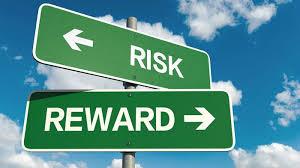Forex trading is akin to starting and running a business. Successful traders have perfected the art of treating trading, as a business, an edge that has seen them survive market cycles and generate a fortune in the process.
Contrary to perception, forex trading is not a gambling or a get rich quick scam. It is not a place that people go to turn $60 to $200,000 overnight. Forex trading is just like any other business that should be approached with caution, given the fair share of risks and rewards always at hand.
As is the case in business, self-discipline and self-awareness are key attributes to conquering the forex market. Likewise, trading should be treated like any other day job, with the only difference being that one is their boss. Just like entrepreneurs, traders are the masters of their destiny
Forex Trading vs. Business Similarities
Business Plan
A business plan is of the utmost importance when starting a business. Similarly, a trading plan is crucial to trading the currency markets. A business plan is what shows entrepreneurs what they ought to do, to protect, sustain, and grow their business. Likewise, a trading plan is a set of rules that guide traders on the opening and closing of trades.
A trading plan also indicates what is needed to launch a trading career right from trading tools to regulatory approvals. Successful traders maintain a detailed plan that they use to enter and exit trades. Similarly, business owners maintain a plan that they use to launch products or service offerings to a target market.
Capital Investment
Forex trading is akin to starting and running a business, given that one must invest capital to generate returns. Invested capital is what allows traders to open and close positions in the forex market for profit. While there is always the prospect of growing the invested capital, there is also the risk of losing the underlying capital on a market downturn.
Similarly, starting a business is a capital intensive venture whereby one must invest a substantial amount of capital to generate profits through sales or service delivery. There is always the prospect of generating revenue through the sale of goods and services. However, the risk of the invested capital is going down the drain on consumers failing to buy items or services on offer.
Risk and Reward
Traditional businesses and forex trading share the same attribute when it comes to risk and reward. When venturing into either of the two, the idea is to pursue optimum returns at the lowest risk possible.

The opening and closing of trades in the forex market are purely based on the underlying risk-reward profile. While a high a risk trade at times leads to a higher reward, traders need to balance risk and reward to stay in the game much longer.
Similarly, high-risk businesses promise higher returns over a short period. However, entrepreneurs take into consideration the risks involved before pursuing such ventures.
Regulation
A legit business is one that adheres to regulations set by authorities in a given jurisdiction. Regulation may come in the form of permits and licenses needed to operate a given business. For permits and licenses, entrepreneurs must share their details used to register the businesses.
Similarly, traders are always advised to deal with regulated and reliable brokers when it comes to trading. Besides, forex brokers require traders first to verify their identities using things like Identification cards, passports, or utility bills as part of Know Your Customers’ policies.
The Risk and Success Rate In Forex Trading and Business
With the right product or service that resonates well with the market, the prospects of a business succeeding are always high. Similarly, most businesses crumble on offering products or services that the market does not need or venturing into an area where there are already market leaders or stiff competition.

Similarly, while making a fortune in the forex market with the right trading strategy, the risk of losing everything with the wrong trade is always high. Therefore Forex trading and traditional business face the fair share of risks in addition to promising higher returns.
Leverage is a double-edged sword in the forex market that allows traders to invest a small amount of capital in placing big trades. While leverage can allow one to grow a trading account much faster, the prospect of losing everything with a wrong trade is always high.
Similarly, businesses take debts to finance underlying operations such as expansion or product developments. While debt can enhance a given business to compete better and target the market, it can also be a precursor for disaster when not paid.
Essential Elements of a Trading Plan
Making money and losing money in forex trading comes down to a trading plan deployed. A trading plan is simply a system that allows traders to execute trades based on market analysis and set out rules while factoring risk management. Successful traders are known to rely on a disciplined approach that involves sticking to a trading plan.
The first step to making a trading plan entails determining the frequency of trading. Determining the frequency allows traders to specialize in a given trading strategy. For instance, those who wish to trade more, scalping tends to be an ideal trading strategy. Similarly, those who wish to hit big runners with a few trades, positional trading has always proved to be ideal.
A trading plan should also detail whether trading decisions are based on fundamental or technical analysis. For traders, good with price action analysis using indicators then, technical analysis would ultimately work well. Similarly, those good with reading and interpreting developments that affect the currency pair’s fundamental analysis would eventually be an ideal price determination strategy.
Positional sizing is also an important aspect that should be taken into consideration when developing a trading plan. Most traders fail and end up losing their hard-earned money using big sizes in trading on expectations of hitting big profits with few trades. Conversely, it is vital to stick to a position size that meets the tenants of risk-reward.
A trading plan should also factor the prospects of making profits as well as losing money. In this case, the use of stop-loss orders and profit take orders will have to be taken into consideration. Stop-loss orders would help protect underlying capital on a trade doing south. Similarly, a profit take order ensures that profits are locked in and not given back.
Bottom Line
Starting and running a business shares the same attributes as launching a trading career in the forex market. Both require people to have the necessary skills to navigate the markets that their businesses operate. A trading plan, discipline, and a balance of risk and reward are critical attributes to launching a successful forex trading career and running a business.




